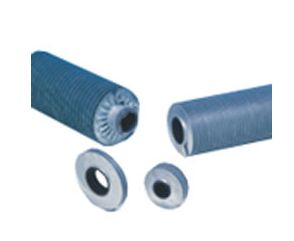 Recently, I came across some interesting news about an upcoming project by Novelis, a leading American aluminum rolled products manufacturer. They announced their plans to build a massive aluminum recycling facility in Germany, with a total investment of 200 million euros ($259 million). This state-of-the-art recycling plant is set to be located in Nachterstedt, within the eastern German state of Saxony-Anhalt, and is expected to be fully operational by 2014.
This new facility is designed to process up to 400,000 tons of aluminum ingots annually, sourced from various materials such as beverage cans, cables, wires, and industrial scrap. According to Tadeu Nardocci, the President of Novelis Europe, this ambitious project will create approximately 200 new job opportunities. Furthermore, the output of these recycled aluminum ingots will primarily serve the needs of Alunorf, one of the largest aluminum rolling mills globally, which is also partially owned by Nobelis, a subsidiary of Hydro, a Norwegian company.
Despite the ongoing Eurozone debt crisis, Nardocci remains optimistic about the growth prospects for aluminum demand in Europe throughout 2013. He emphasized that aluminum's lightweight, eco-friendly, and energy-efficient attributes will continue to drive its adoption across multiple industries. With this new recycling plant, Novelis aims to significantly boost its commitment to using recycled aluminum, targeting an impressive 80% usage rate by 2020, compared to the current level of around 30%.
Interestingly, the German aluminum industry faces significant challenges due to rising electricity prices, putting several existing facilities at risk. However, aluminum recycling requires only about 5% of the energy needed for primary aluminum production. As a result, this innovative recycling plant will remain largely unaffected by high energy costs, ensuring its long-term viability and contributing to a more sustainable future for the industry.
In conclusion, this development not only underscores Novelis' dedication to environmental sustainability but also highlights the company's strategic vision in navigating economic uncertainties while driving innovation in the global aluminum sector. It’s exciting to see how such initiatives can pave the way for cleaner manufacturing processes and contribute positively to both economic and ecological goals.
Recently, I came across some interesting news about an upcoming project by Novelis, a leading American aluminum rolled products manufacturer. They announced their plans to build a massive aluminum recycling facility in Germany, with a total investment of 200 million euros ($259 million). This state-of-the-art recycling plant is set to be located in Nachterstedt, within the eastern German state of Saxony-Anhalt, and is expected to be fully operational by 2014.
This new facility is designed to process up to 400,000 tons of aluminum ingots annually, sourced from various materials such as beverage cans, cables, wires, and industrial scrap. According to Tadeu Nardocci, the President of Novelis Europe, this ambitious project will create approximately 200 new job opportunities. Furthermore, the output of these recycled aluminum ingots will primarily serve the needs of Alunorf, one of the largest aluminum rolling mills globally, which is also partially owned by Nobelis, a subsidiary of Hydro, a Norwegian company.
Despite the ongoing Eurozone debt crisis, Nardocci remains optimistic about the growth prospects for aluminum demand in Europe throughout 2013. He emphasized that aluminum's lightweight, eco-friendly, and energy-efficient attributes will continue to drive its adoption across multiple industries. With this new recycling plant, Novelis aims to significantly boost its commitment to using recycled aluminum, targeting an impressive 80% usage rate by 2020, compared to the current level of around 30%.
Interestingly, the German aluminum industry faces significant challenges due to rising electricity prices, putting several existing facilities at risk. However, aluminum recycling requires only about 5% of the energy needed for primary aluminum production. As a result, this innovative recycling plant will remain largely unaffected by high energy costs, ensuring its long-term viability and contributing to a more sustainable future for the industry.
In conclusion, this development not only underscores Novelis' dedication to environmental sustainability but also highlights the company's strategic vision in navigating economic uncertainties while driving innovation in the global aluminum sector. It’s exciting to see how such initiatives can pave the way for cleaner manufacturing processes and contribute positively to both economic and ecological goals.
Fan Light,Ceiling Fan Light,Led Ceiling Lamp Light,Led Ceiling Fan
JIANGMEN MOSCOT OPTOELECTRONIC TECHNOLOGY CO.,LTD. , https://www.sensorsled.com
